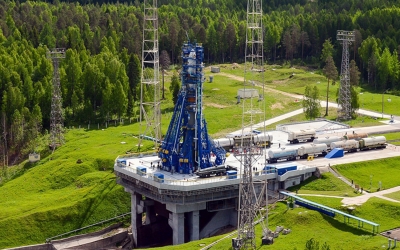
Russia has achieved great heights in the field of space technology and space exploration, and its national space agency is known as Roscosmos. These achievements can be traced back to Konstantin Tsiolkovsky, who is known as the father of theoretical astronautics. His works inspired Soviet rocket engineers, such as Sergey Korolyov, Valentin Glushko, and many others to contribute immensely to the Soviet space programme in its early stages, leading to its participation in what is called the ‘Space Race’.
There is a name that one cannot forget in the history of space expeditions – Sputnik-1. In 1957, this satellite was launched by Russian scientists as the first Earth-orbiting artificial satellite. Later, in 1961, Yuri Gagarin made the first human trip into space. This was followed by a number of other Soviet and Russian space explorations, which include the journey of Valentina Tereshkova in 1963 to become the first woman in space. She flew alone in Vostok 6. Russia also holds the record for the first human to have conducted a spacewalk-in 1965, Alexei Leonov exited the space capsule of the mission Voskhod-2 and walked in space.
Can you guess what other records Russia has in this area? They sent the first animal into outer space. Travelling in Sputnik-2 in 1957, a dog named Laika became the first animal to orbit the Earth. In 1966, Luna-9, landed on the Moon, making it the first spacecraft to achieve a survivable landing on a celestial body. In 1968, Zond-5 completed the mission of circumnavigating the Moon with two tortoises and other life forms from Earth. Later, Russia’s Venera-7 became the first spacecraft to land on Venus. Following this achievement, Mars-3 became the first spacecraft to land on Mars in the very next year 1971. During this time, Russia also sent Lunokhod-1, which became the first space exploration rover. Salyut-1 became the world’s first space station, which was yet again a Russian project. As per the 2021 data, Russia had 167 active satellites in space, which is the world’s third-highest count.
Picture Credit : Google




